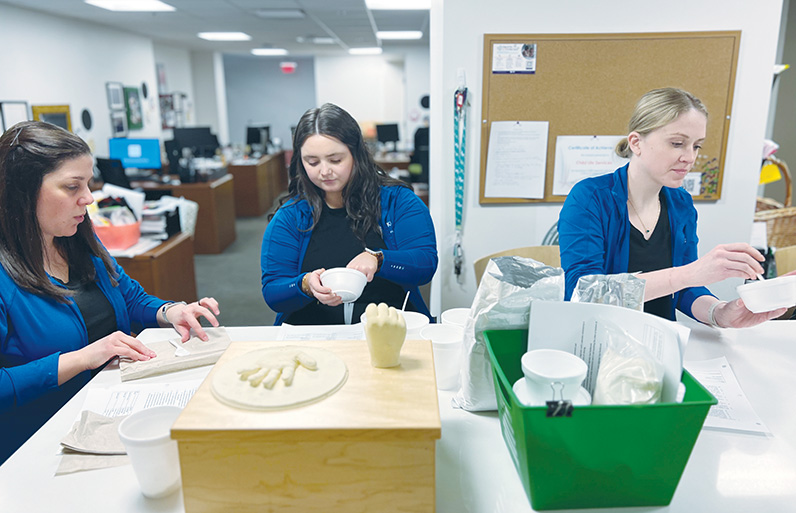
From left, Ashley Wilson, McKenzie Hansen and Lauren Dexter of Mercy Hospital Springfield in Missouri learn how to take hand and foot molds to create mementos of babies who have died or are dying. The molds are just some of the offerings for families experiencing the loss of an infant or child. Wilson, Hansen and Dexter are part of the Child Life services team at Mercy Springfield’s Mercy Kids.
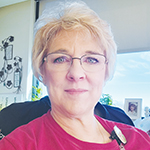
When Lisa Logan started working in neonatal nursing more than 40 years ago, there generally was little formal programming at most hospitals to help parents who experienced miscarriage or stillbirth. The death of a baby was by and large a taboo subject in society — and sometimes even in hospitals.
Now a neonatal clinical nurse educator and bereavement coordinator at Mercy Hospital Springfield in Missouri, Logan says times, thankfully, have changed. The medical field has evolved greatly in understanding infant loss and the devastating impact it can have on families. Logan and several other perinatal bereavement experts in the ministry say their hospitals have been making a focused effort to build up programs and resources for families suffering the loss of a baby before, during or after birth.
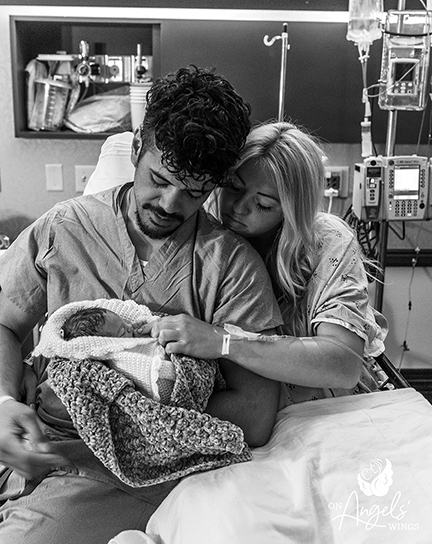
Mercy Hospital Springfield in Missouri offers comprehensive support services to families experiencing infant loss through the HeartPrints program. The hospital has partnered with the Springfield-based nonprofit On Angels' Wings (oawphoto.org) to offer such families free photography sessions with their baby.
The facilities surround these families with an interdisciplinary team that seeks to understand their goals and wishes and what they are going through. The teams then provide the families with the resources they need to achieve their goals.
"Ninety-nine percent of the families we work with want this help," says Logan. "They want closure for themselves. And they want their baby to be remembered — that they did exist, they had a story, they had a purpose, they were part of the family."
Rising infant mortality
According to Stanford Medicine Children's Health, as many as
one in four pregnancies ends in loss, though most occur during the first trimester and often before the mother is aware she's pregnant. Pregnancy loss that occurs after 20 weeks' gestation is called stillbirth. The Centers for Disease Control and Prevention says about 21,000 stillbirths were reported in 2020 in the U.S.
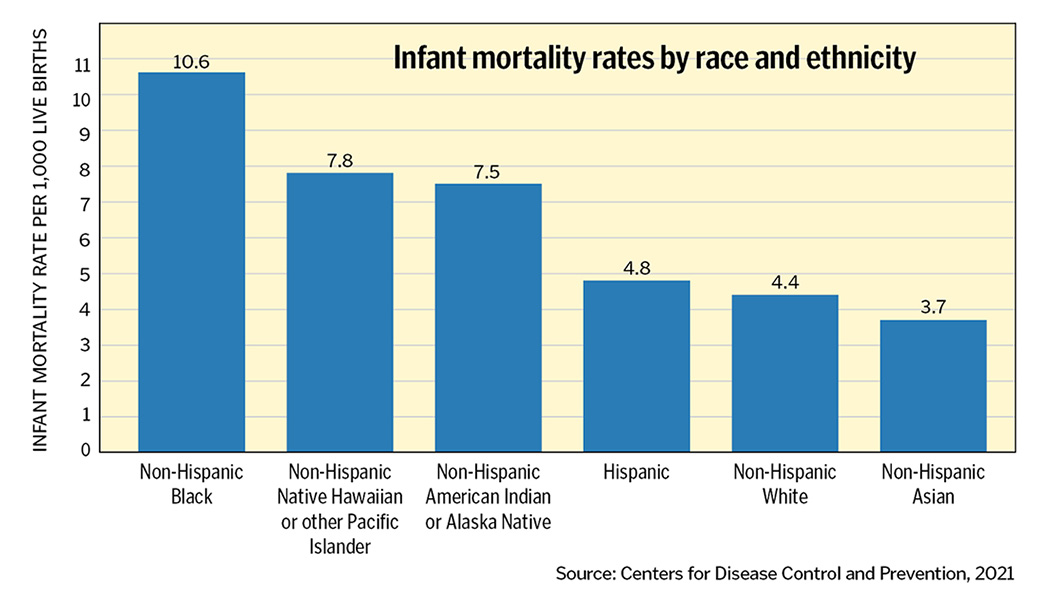
When it comes to post-birth loss, there were 20,538 infant deaths reported in the U.S. in 2022. A November report from the National Center for Health Statistics says that rate is 3% higher than the 2021 rate, the first increase in two decades. The report noted that the most significant increases were among infants born to American Indian, Alaskan Native and white women; infants born to women aged 25 to 29; infants born preterm; and male infants. The agency didn't speculate on why infant mortality increased.
The Stanford Medicine resource says that there usually are profound impacts on a family regardless of whether the baby's death occurs before, during or after birth. The baby's parents, siblings and others can feel profound shock, numbness, denial, confusion, guilt, anger, yearning, depression, and disorientation among many other emotions, it says.
Intentionality
Perinatal loss experts from a sampling of ministry hospitals offering perinatal bereavement programming say they have a passion for helping families prepare for and navigate their loss and grief as well as for supporting
them with spiritual and practical aid.
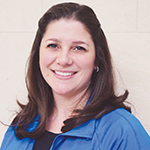
Ashley Wilson manages Child Life services at Mercy Springfield's Mercy Kids. She says about a decade ago multiple departments within the Chesterfield, Missouri-based Mercy system recognized that they all were using different approaches to aiding families who had lost a baby. So the hospitals worked together to standardize best practices across the system. They formalized the approaches and established the Mercy HeartPrints program.
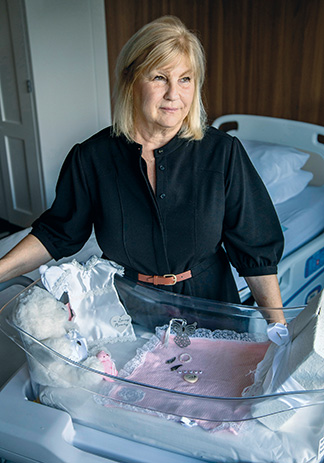
When a family learns their baby has a terminal diagnosis, a multidisciplinary team meets with the family. The team includes clinicians, perinatal specialists like Logan, Child Life team members and spiritual care team members. Discussion at the meeting covers the family's understanding of the diagnosis, its implications, and their goals and desires. They talk about how to navigate difficult medical and ethical decisions and come up with a plan for how to proceed. The plan addresses the needs of the baby and family members.
Wilson says the HeartPrints team then works together to help carry out that plan. This may include connecting the family with counseling, spiritual care services and grief support groups and with palliative care for their baby at the end of his or her life. The team also talks with families about how they may wish to memorialize their baby.
Wilson says through the HeartPrints program, "we are acknowledging that losing a loved one is such a difficult time. We are trying to help provide families with items and resources to support them in their grieving. We want to help them in their journey."
Practical concerns
St. Joseph Hospital in Nashua, New Hampshire, has a perinatal bereavement support program with four staff members serving as navigators for families whose babies have a terminal diagnosis. The team helps the family
understand the baby's condition and the implications and then helps them access services like counseling and grief support groups.
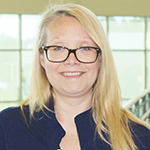
In addition to supporting families with spiritual and behavioral care, the St. Joseph team assists with practicalities like obtaining a death certificate and accessing free funeral services. "Our navigation services are unique because we combine social work and nursing," says Nicole Snow, who is a care transitions supervisor and a member of St. Joseph's perinatal bereavement support team.
She says many families who lose a child may experience "forgotten grief" because other people in their lives may forget that they are grieving a baby who hadn't been in their lives long. St. Joseph's shows them their grief is not forgotten, says Snow.
Specialized training
Brandi Hoesley works in the neonatal intensive care unit of SSM Health St. Mary's Hospital — Madison in Wisconsin and leads the hospital's perinatal bereavement team.
She says as St. Mary's was exploring ways to improve its services for families coping with a baby's terminal diagnosis and death, leaders came across the Resolve Through Sharing bereavement training from Gunderson Health System in La Crosse, Wisconsin. There are training sessions in perinatal, neonatal, pediatric and adult death — with two-day courses for providers and three-day courses for leaders. Multiple members of St. Mary's perinatal bereavement team have been certified in bereavement support through Resolve Through Sharing training. They've learned to understand family members' needs and address them.

Hoesley notes the training also covers how best to serve families of different cultures and of different sexual identities, based on some of the beliefs, perceptions and concerns they may have about death and dying.
Full circle
Julie Lazar-Reskakis is the perinatal bereavement specialist at Holy Name Medical Center in Teaneck, New Jersey. Several years ago, she was serving as an end-of-life doula when she came across a podcast featuring perinatal
loss expert Sherokee Ilse.
The concept of providing perinatal loss services "went right to my heart," says Lazar-Reskakis. She suffered her own pregnancy losses decades ago and felt her experience had been dismissed, minimized and glossed over by others.

Hearing Ilse speak on perinatal loss "reignited the passion for me," says Lazar-Reskakis, who quickly signed up and completed Ilse's training in perinatal bereavement support. Lazar-Reskakis then joined Holy Name two years ago to revive a program that was faltering.
She is a resource for families experiencing perinatal loss, helping them navigate support services. She has been exploring how best to educate clinicians about perinatal loss, especially in hospital departments that are the frontline for women in pregnancy crisis. She's developing resource kits for families impacted by this type of loss and sets up support groups and events for them.
She says through this work everything has come "full circle" for her. "I had felt my own loss had not been recognized. And loss needs to be recognized," she says. "To help other women and families with this is so personal to me."
